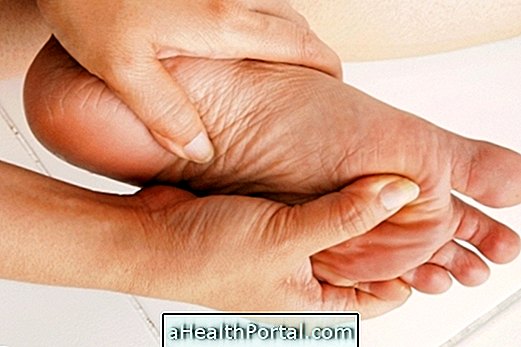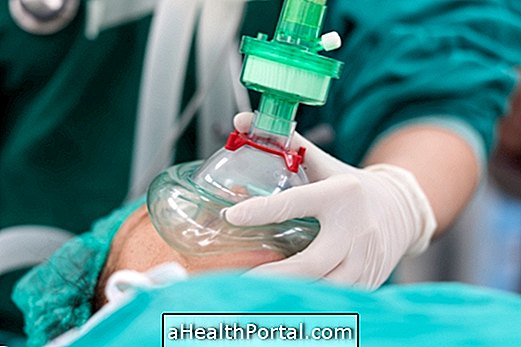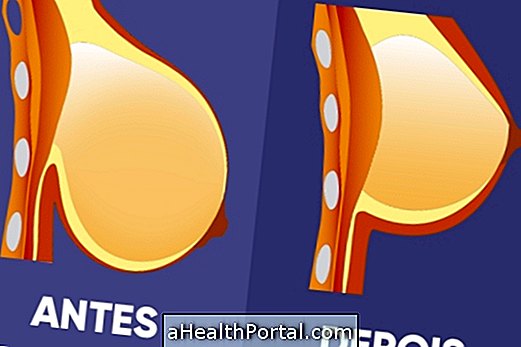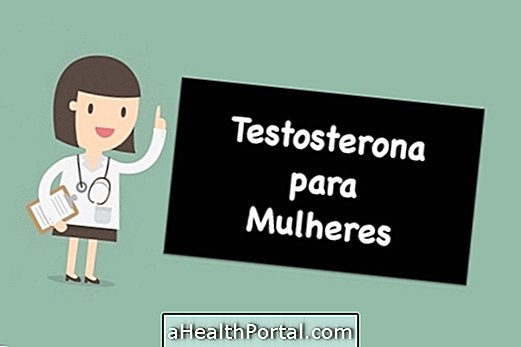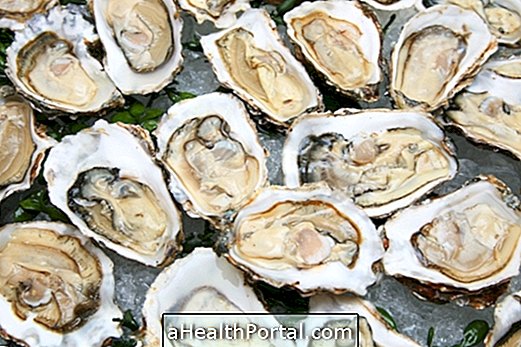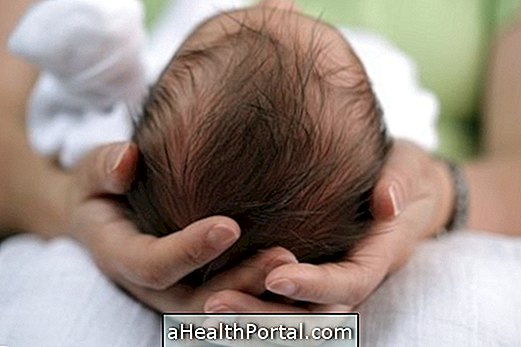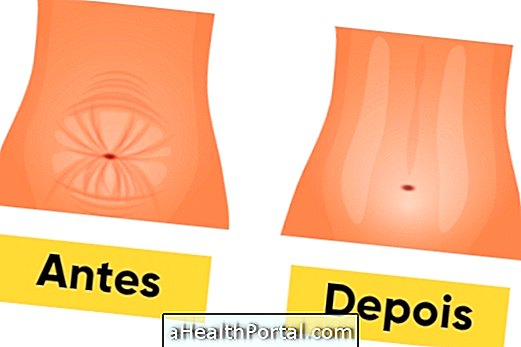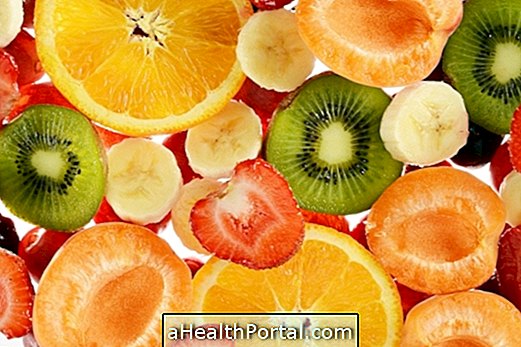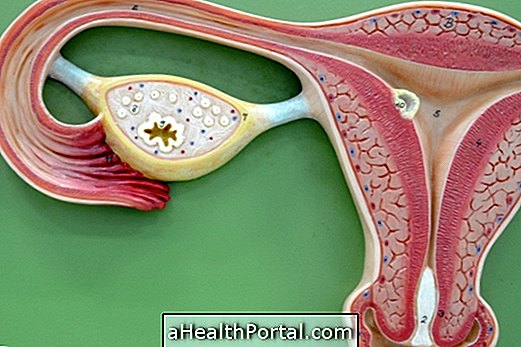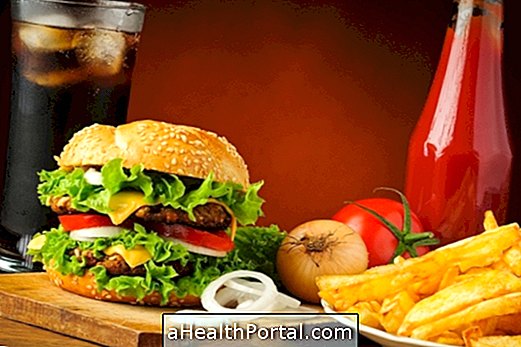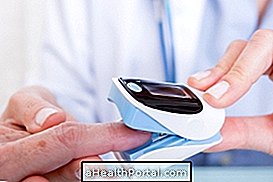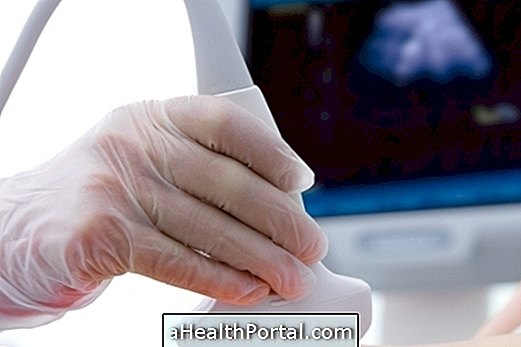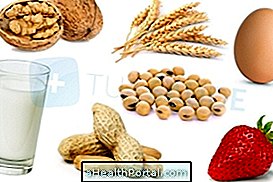There are diseases that can cause lesions and affect the structure of the esophagus, an organ that has the important function of transporting food and fluids between the mouth and the stomach, and some of the major ones include gastroesophageal reflux, esophagitis, tumor, spasms, infections, for example.
The main symptoms caused by these diseases are chest pain, heartburn, reflux, difficulty swallowing or cake sensation in the throat region. Often the pain is intense and confused with heart, lung or muscle diseases, therefore, medical evaluation is always necessary to perform exams such as digestive endoscopy, manometry, ultrasound or contrast radiography of the region, which identify changes in the structure of the organ and other causes. Understand more about the other causes of chest pain.
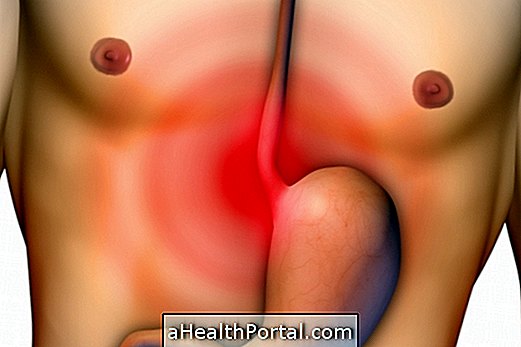
1. Gastroesophageal Reflux Disease
Also known as GERD, this disease is caused by the reflux of the contents of the stomach into the esophagus, which should not happen because the tissue of this organ is not prepared to receive excess acidity.
- Symptoms : The main symptoms of gastroesophageal reflux include burning of the chest, heartburn, bitter taste in the mouth, coughing at night, recurrent laryngitis, and in more severe cases, there may be chest pain, pain to swallow (odynophagia) and difficulty swallowing dysphagia).
- Treatment : The use of medicines to decrease the acidity of gastric juice, such as Omeprazole, Pantoprazole, Esomeprazole or Ranitidine, is indicated. It is also necessary to make changes in habits, such as avoiding foods that facilitate reflux, such as fried foods, fats, mint, pepper, coffees, teas, tomatoes, acidic foods, in addition to avoiding to eat too much, lie down right after eating and wear tight clothing.
If gastroesophageal reflux is not treated properly, some of the possible complications are esophagitis, Barrett's esophagus, narrowing of the esophagus, and even cancer. Learn more about what is and how to identify gastroesophageal reflux.
2. Esophagitis
Esophagitis is inflammation of the esophagus, a complication that affects some people with gastroesophageal reflux disease. This inflammation increases the risk of causing Barrett's esophagus, which arises when inflamed cells undergo a transformation, called metaplasia, to withstand frequent exposure to acidity, and which is at increased risk of causing esophageal cancer.
Other causes of esophagitis include fungal, herpes or cytomegalovirus infections, post-radiation during the treatment of cancer, such as breast and lung, eosinophilic esophagitis or corrosive esophagitis due to the ingestion of caustic or acidic substances.
- Symptoms : pain or burning of the chest, pain or difficulty swallowing, bitter taste in the mouth, cough, frequent laryngitis.
- Treatment : If caused by reflux, treatment of esophagitis is also done by inhibiting the acidity of the stomach, with medications such as Pantoprazole, Omeprazole and Ranitidine, for example, in addition to changes in eating habits. If it is caused by infections, medications such as antibiotics, antifungals or antivirals are indicated until the healing of the lesion. Already in cases of irritation by drugs, substances or radiation, it may be necessary to dilate the esophagus if its function has been compromised.
Learn more about the types of esophagitis and how to treat them.
3. Esophageal spasm
Esophageal spasm occurs due to an incoordinated activity of this organ, which causes painful and abnormal contractions of the esophagus.
- Symptoms : Difficulty in swallowing and chest pain, which may occur during sleep, worsen after meals, and are accompanied by burning, reflux, and difficulty swallowing. In some cases, the pain may be so severe that it can mimic an acute myocardial infarction.
- Treatment : Pain can be relieved with antacids and, to control spasms, your doctor may point out medications such as nitrates, hydralazine, calcium channel blocker, botulinum toxin and anxiolytics, for example.
To confirm this disease, your doctor may order tests such as manometry, which detects esophageal pressure, as well as contrast x-ray and endoscopy.
4. Esophageal cancer
Tumor in the esophagus is rare, and in most cases it is related to the existence of Barrett's reflux disease and esophagus; however, other risk factors are smoking, alcohol consumption, caustic injury or HPV infection.
- Symptoms : The main symptom is the difficulty to swallow food, which worsens gradually, starting with solid foods and can reach liquids. Other signs and symptoms that may arise are weight loss, hoarseness, pain when swallowing and anemia.
- Treatment: Treatment is indicated by the physician according to the type and severity of the lesion and usually includes surgery for removal of the tumor in addition to chemotherapy or radiation therapy.
Learn more about how to identify and treat esophageal cancer.

5. Achalasia
Achalasia is a disease caused by the injury or loss of the neurons responsible for the innervation of the esophageal muscles. In this way, the esophagus loses its ability to relax during swallowing and to perform peristalsis, which are the waves of digestive tract movements formed to carry food in the right direction, down to the stomach and intestines. Thus, in achalasia there is a dilation and gradual deformity of the esophagus, which may worsen as time.
- Symptoms : The main symptoms are difficulty swallowing, reflux, chest pain and weight loss.
- Treatment : Although there is no cure, your doctor may recommend treatments to reduce pressure in the esophagus and symptoms, such as nitrates or hydralazine. Surgery for dilatation of the esophagus or myotomy is an alternative to facilitate emptying of the esophagus in more severe cases. In the latter case, removal of the esophagus may be necessary.
Chills are caused by autoimmune causes; however, Chagas' disease can also cause nerve damage and cause similar dilation in patients with this infection. To confirm achalasia, the doctor may perform tests such as esophageal manometry to detect changes in pressure, in addition to endoscopy and radiography with esophageal contrast.
6. Diverticulums
Diverticula are changes in the structure of the esophagus, which are usually small but can grow and become capable of holding saliva and food.
- Symptoms : When large, diverticula can cause difficulty swallowing, bad breath and aspiration of food into the lungs.
- Treatment: Surgery may be indicated for removal of larger or symptomatic diverticula.
In addition to the diverticula, other changes in the structure of the esophagus that may arise are rings and membranes along the organ, in addition to benign polyps or tumors, which may make it difficult to swallow food, and may have congenital or inflammatory causes.
7. Injuries to the esophagus
An important cause of pain in the esophagus, although rare, is the formation of lesions or perforation, which occur either through the presence of intense vomiting or during procedures such as endoscopy or placement of nasogastric tubes, injuries in accidents or even due to corrosion caused by esophagitis or cancer.
- Symptoms : There is severe pain in the chest, which worsens on breathing or coughing, and there may be blood leakage during vomiting. There may also be inflammation of the mediastinum, an area where other important organs such as the heart and lungs are located, which is dangerous and can put one's life at risk.
- Treatment: aspiration of the secretions with catheter, use of antibiotics and avoid eating until the healing of the lesion is necessary. When the injury is large or can not be contained, surgery for correction is indicated.
In addition to the formation of lesions, there may be impaction of food or some foreign body that may be lodged in the esophagus and cause intense pain and inability to eliminate the secretions formed. In some cases, removal of the cause by endoscopy may be necessary.
